Warning: The following article on how Alan Wake 2 makes the player’s biggest enemy their own mind contains mild spoilers.
Alan Wake 2 is a survival horror game through and through, but I had to run away from monsters or shoot “shadow people” surprisingly few times. As the credits rolled and it firmly became my personal GOTY, I couldn’t stop thinking about how sparse combat was in Remedy Entertainment’s latest.
This is a good thing. Video games have been (and continue to be) criticized for relying far too much on combat and violence to maintain the attention of players. Of course, this doesn’t apply to every genre under the sun, but it’s hard to come across adventures and horror experiences light on enemy encounters. In fact, Alan Wake 2 could work in the same way with even less combat moments, but within the AAA space, it’s one of the boldest approaches to survival horror I can remember.
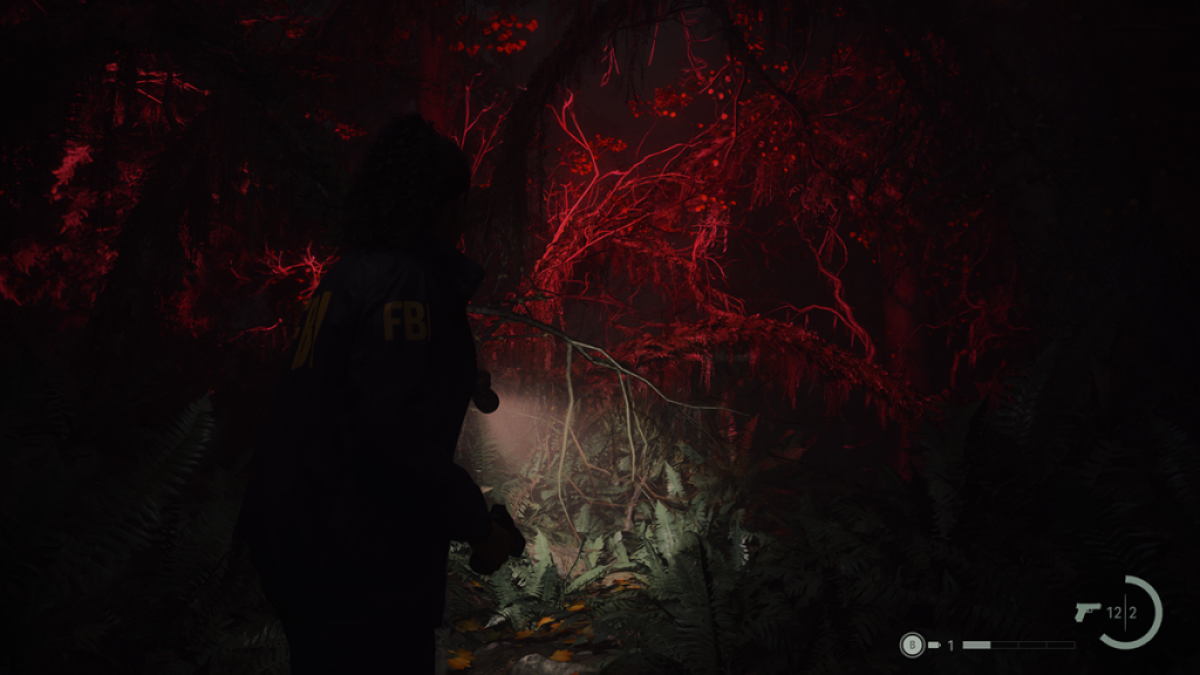
Unsurprisingly, the Silent Hill series has been repeatedly brought up as one of the long-anticipated sequel’s biggest influences, and it’s easy to see why: Alan Wake 2 chooses to focus on the oppressive nature of its locales – whether they’re natural or nightmarish – and the sense of exploration that previous Remedy games had only toyed with. In this scenario, enemies are more like obstacles in the path to illumination via deduction and interaction with the world and the NPCs that inhabit each level.
Curiously enough, Alan’s side of the game, while aesthetically closer to Silent Hill than Saga’s more “grounded” chapters, feels more linear and closer to a cinematic riff on the traditional survival horror formula. Mind you, huge chunks of the Dark Place can be freely explored, and scrounging for ammo and other useful items is a thing inside the writer’s twisted supernatural dimension, but it’s Saga’s half of the game where things play out in a more flexible and expansive manner.
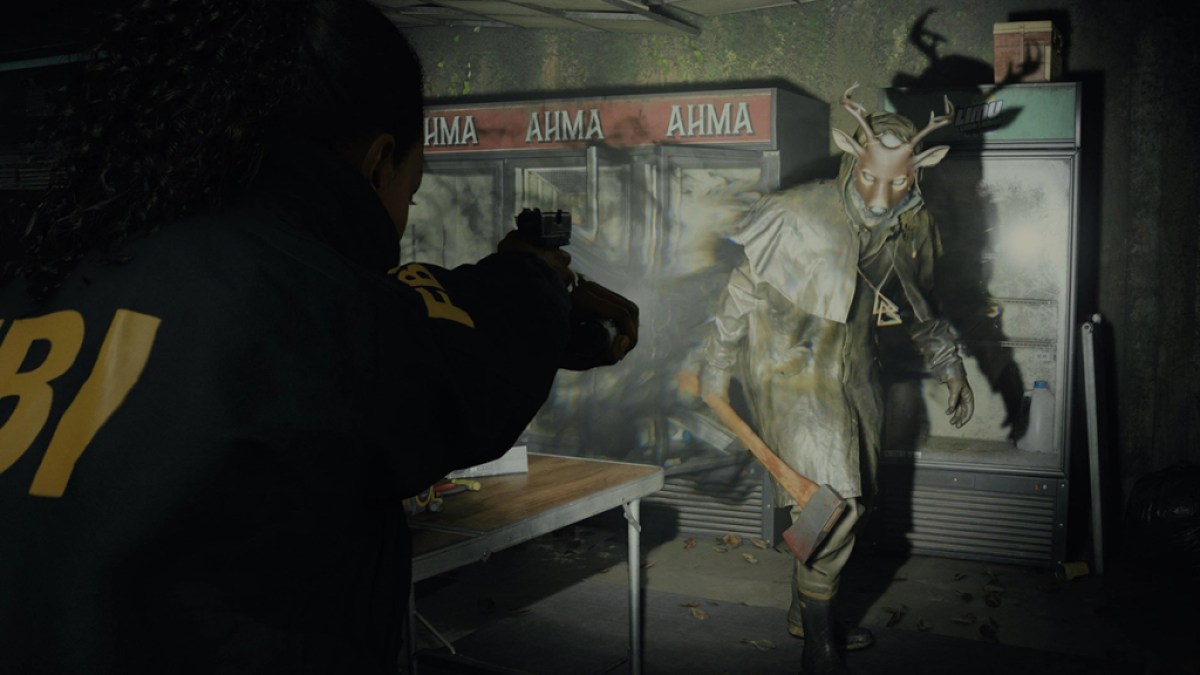
The first Alan Wake was heavily criticized for its repetitive enemy encounters and half-baked combat mechanics. I personally thought it had a couple of neat ideas that made them interesting, but I agree that the execution was far from perfect. The bigger issue was that the game’s action-adventure-ish nature made almost every combat scenario unskippable (and potentially annoying), highlighting the gameplay loop’s weakest elements.
Looking at Quantum Break and Control, it was reasonable to expect Alan Wake 2 to go louder and tighter with its combat. Instead, directors Sam Lake and Kyle Rowley went the opposite direction to reach for that survival horror status. It worked out wonderfully, with the game’s moment-to-moment gameplay mostly behaving like a streamlined take on the Resident Evil remakes’ basic combat and movement. Both Alan Wake and Saga Anderson are capable yet fragile action-horror heroes, and facing enemies head-on isn’t encouraged. Resources can also be as infrequent and precious as in indie darlings such as Signalis, and I often found myself carefully picking my fights in the most open areas of the game.
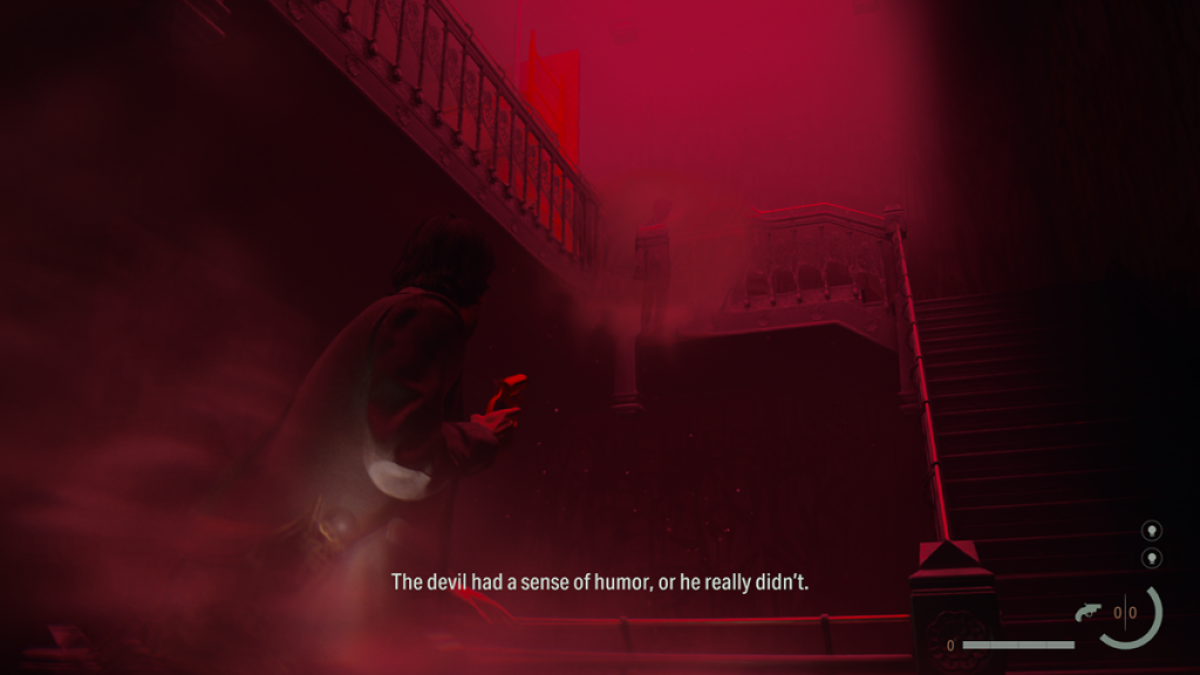
If you follow certain “ground rules” regarding the use of ammo and items, you’re likely to waltz through Alan Wake 2 just fine on the Normal difficulty setting. This was quite different from my (two) playthroughs of its predecessor, where difficulty spikes and the rigid design often soured the overall experience. Why then was I utterly unnerved every time I closed this game?
I believe the biggest foe in Alan Wake 2 isn’t the Dark Presence nor its shadow armies, but the player’s mind. Much like the titular character, we’re thrown into the deep end of a black pool that we barely understand, where rules appear to be improvised as the story progresses. In your average survival horror game, enemy patterns and behaviors become easy to read after each initial shock, and the spookier moments can be predicted after a few jump scares. Alan Wake 2 doesn’t a pack a whole lot of enemy variety, and its half-second screamers can get tiresome, yet it becomes unpredictable with well-placed tricks and deception.
More than half of the creepy, murmuring shadows roaming around the Dark Place aren’t a threat; they’re there just to fuck with your mind and make you waste hard-earned bullets and batteries. Disturbing noises aren’t always warnings of enemies around the corner either. A calm player that actually grapples with how the Dark Presence and Place work will be more successful at navigating the tougher zones. The problem is that actually predicting what’s gonna happen next ain’t easy. In the game’s story, Alan is dealing with that issue too: Sometimes, you’re your own worst nemesis.
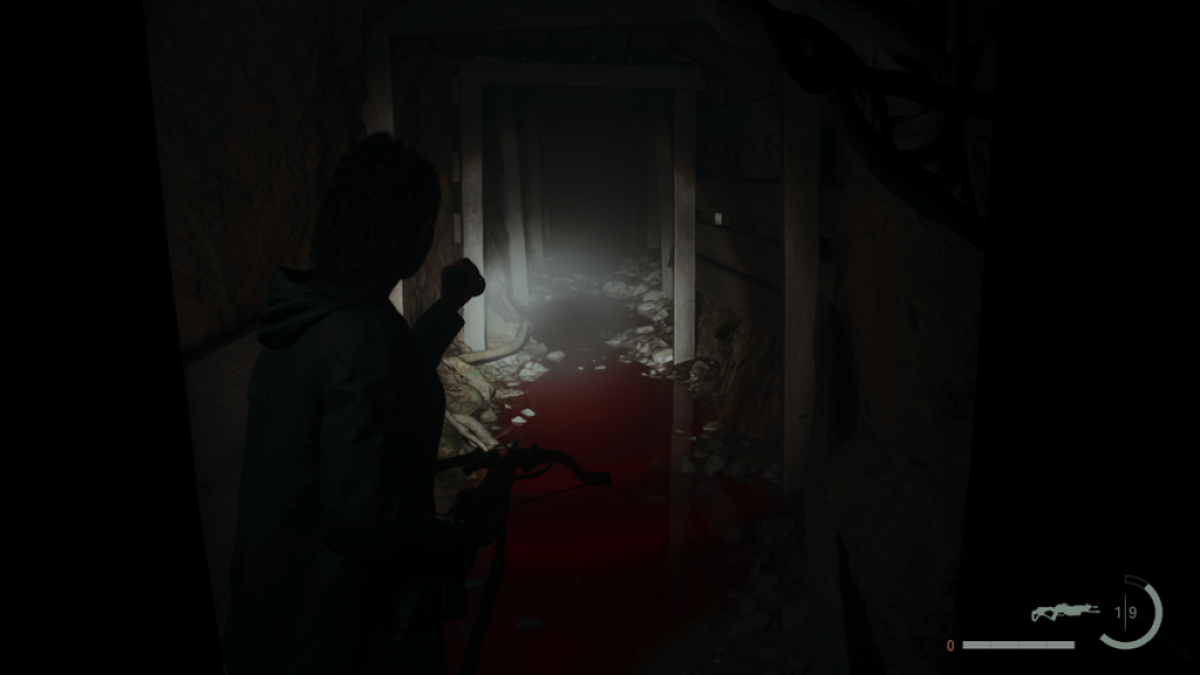
Things aren’t very different in the “real” world, as Saga’s chapters can often be beaten without firing more bullets than the ones required by boss encounters, and the more intense bits never get as scary as the game’s excellent sound design and art direction might suggest. That’s their job: to make us see shadows everywhere. In a way, the devs become the Dark Presence with their constant tricks and red herrings. Once you see past most of their lies, the path becomes clearer, and I’m pretty sure that’s the way the game is meant to be approached. It really isn’t a Resident Evil-like “witch train” where your skills will be tested despite its surface, and instead asks players to question everything without sacrificing their curiosity.
All this digressing doesn’t negate the fact there are some tense combat encounters and tricky bosses in Alan Wake 2, don’t get me wrong. But I was genuinely surprised by the level of restraint the game exhibits. A lot is bet on the (phenomenal) script and medium-bending bits to both charm and unnerve. Moreover, the rules of the horror genre are put under the magnifying glass to question whether they’re effective anymore. It all clicks on a playable and narrative level, and that’s no easy feat with a game this ambitious.
Sam Lake and the Remedy Entertainment gang make their brand of psychological meta horror seem easy to pull off, but the truth is my jaw was on the floor almost all the way through (and that’s without even getting into the next-level graphics). We’ve seen indies fumble this kind of pitch before, and AAA budgets make this degree of experimentation in big blockbuster releases impossible. Alan Wake 2 is a miracle that ultimately feels as perfectly imperfect as the humans at the center of its story, and I wouldn’t want it any other way.

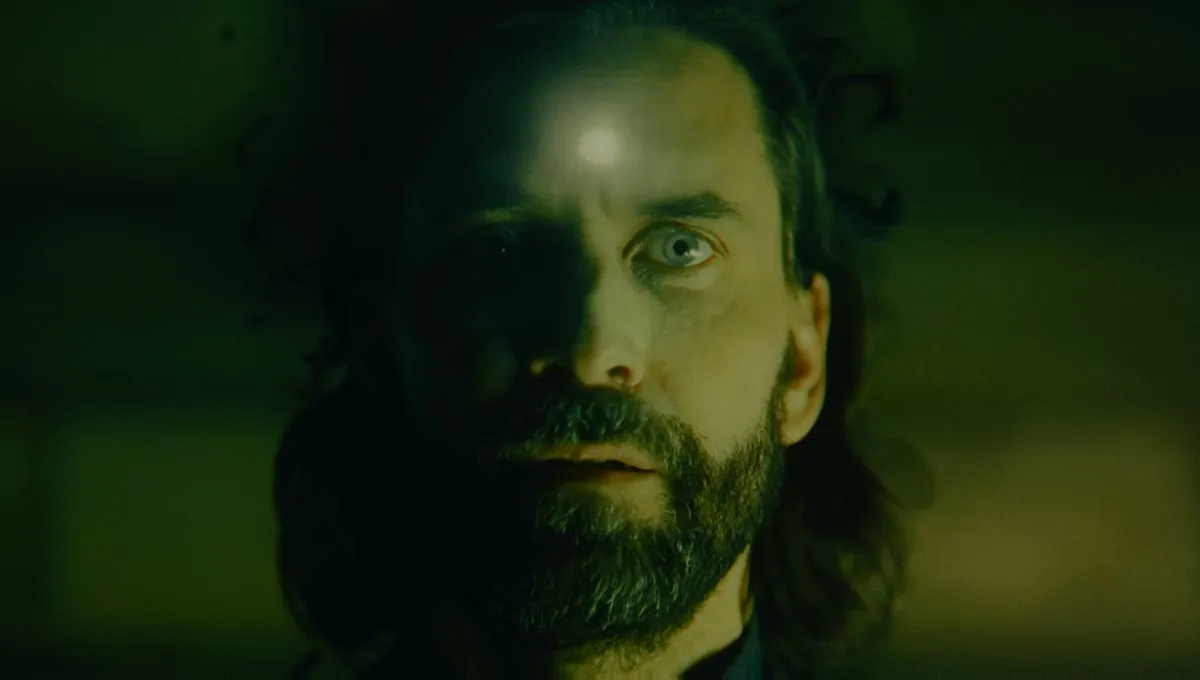




Published: Nov 22, 2023 03:52 pm